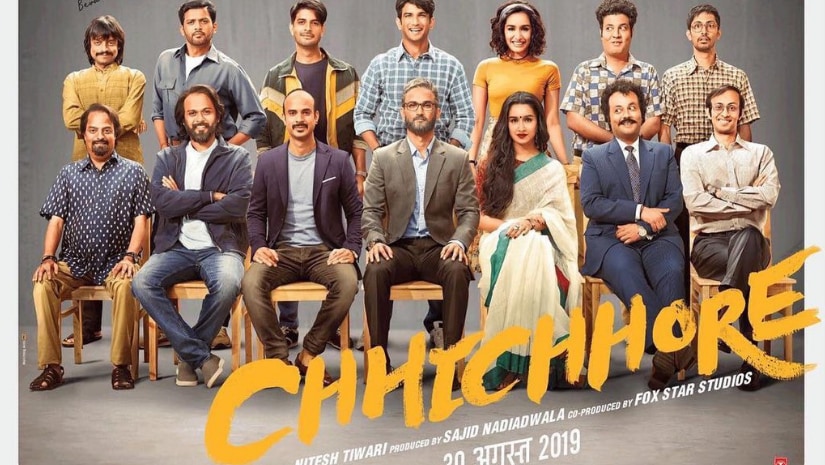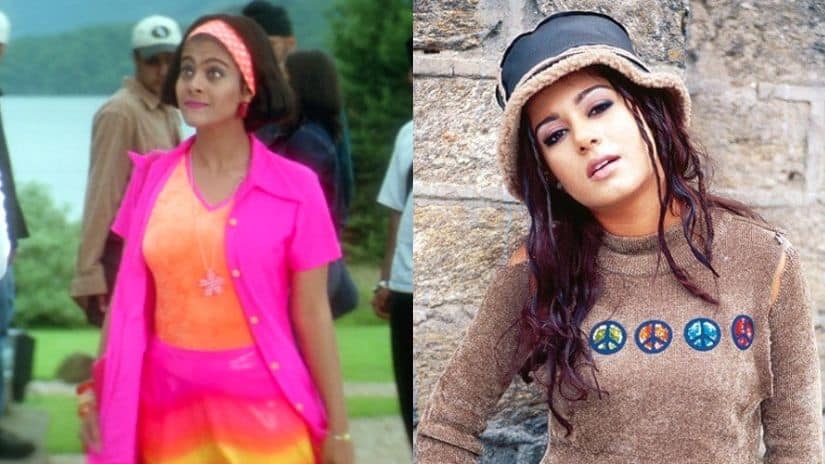Seven friends meet in college, become thick friends, lose touch and are united decades later after a tragedy strikes — this is the subject of Dangal helmer Nitesh Tiwari’s upcoming campus caper, Chhichhore. If the description sounds somewhat familiar, it is perhaps because, not long ago, Karan Johar had helmed a very similar narrative, about college students reuniting years later in an unlikely circumstance — Student of the Year (2012). [caption id=“attachment_5344841” align=“alignnone” width=“825”]  A poster of Chhichhore. Twitter[/caption] Make no mistake, Bollywood has excelled for years at regurgitating similar formulae films and even making mounds of cash out of these movies. However, unoriginality is necessarily not a bad thing. Familiar tropes make viewers take comfort in the idea that they already know what’s to pan out. Hence, even if we know that Shah Rukh Khan’s Raj will bash the living daylights out of Kuljeet, or Bauji will allow Simran to “jee le zindagi (live your life) at the end of Dilwale Dulhania Le Jaayenge, we enthusiastically revisit these films again and again. Bollywood campus capers, much like ’90s romcoms, have often based their narratives on recurring themes of friendship, heartbreak and self-discovery. The demography is young, thus campus movies often revolve around firsts — Pehla pyar (first love) being the most popular theme. But most importantly, coming-of-age films are centred around naive teenagers, who are exposed to the vagaries of the world outside, and how they learn to chart their paths to insurmountable glory. [caption id=“attachment_7291361” align=“alignnone” width=“825”]  Kajol in Kuch Kuch Hota Hai and Amrita Rao in Main Hoon Na. Images from Twitter[/caption] Kuch Kuch Hota Hai Arguably one of the most popular college films to be ever made in Hindi, it was precisely about the tectonic shift of graduating to college life. Apart from mulling over Anjali’s heartbreak after the ever-so-problematic Rahul falls in love with Tina, the film also tenderly explores the psyche behind desperately wanting to fit in an alien world. Anjali is a tomboy who believes that Rahul will only bat an eyelid towards her if she manages to adhere to societal beauty standards. Main Hoon Na Similar to Kuch Kuch Hota Hai, the idea of not being comfortable in one’s own skin plays a major role in this tale. Although, Amrita Rao’s Sanjana does undergo an elaborate makeover, in one of her angry outbursts, she tells Lucky (Zayed Khan) his attraction towards her is nothing but a superficial one. Jo Jeeta Wohi Sikander The theme of being a fitting into a place where you “do not belong” is explored further in Jo Jeeta Wohi Sikander, which is perhaps one of the most subtle and nuanced films on class divide. This 1992 gem saw Aamir Khan as a wayward, careless bloke Sanju, who is made aware of his economic standing when he crosses path with the rich, entitled Shekhar from a rich, affluent school. The film charts how Sanju, against all odds, is able to emerge victorious. While Sanju is an underdog, he is not the ideal, obedient, and lovable protagonist. He too tries to fit in, but is insolently cast out of the elite bunch. When the realisation that the priviledged will never accept him as one of their own dawns on him, he resolves to beat them, even with his limited resources. 3 Idiots Rather than trying to fit in_, 3 Idiots_ tried to shed light into the perils of aiming to stand out of the crowd. Even with its vibrant sets and dream sequences, 3 Idiots was gut-punches galore. The film delved into teen suicides, mounting academic pressure, finding one’s niche, the staggering expense of higher education in the country, friendship and romance, without becoming didactic or sermonic. The four protagonists, three from an engineering college, and one in med school, have sky-high aspirations out of their lives. Raju (Sharman Joshi) is the only beacon of hope in his impoverished family, Farhan (R Madhavan) is the child prodigy in the Qureshi household. His father wants him to find a well-paying job, and not pursue his passion, photography. Rancho (Aamir Khan) is the only one who is able to consistently top his class. When Rancho doles out life lessons, about not chasing “success” but “excellence”; or when Farhan’s father pulls a “jee le apni zindagi” on his son, we are convinced that despite their struggle, they will eventually be rewarded. Campus dramas are all about the drama that goes on within, which gradually outpours into an outburst. Hence, protagonists of college films are usually men who are not beefy or those who single-handedly batter the bad guys. They are confused, under-confident individuals who demand empathy, understanding, and an assurance that they too can be heroes and heroines of their own stories.
Before Chhichhore releases on Friday, a look at how Bollywood campus dramas have focused on their underdog protagonists’ journey to glory, besides being narratives about first love and heartbreaks.
Advertisement
End of Article
Written by Pratishruti Ganguly
Square peg in a round hole (or something else that's equally cliché), bad punner and worse poetess see more


)
)
)
)
)
)
)
)
)



